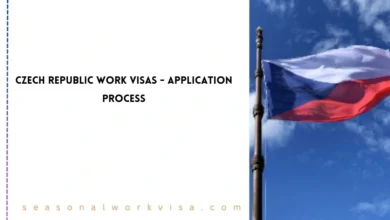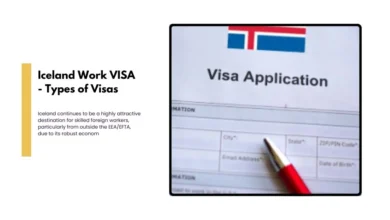Italy Digital Nomad Visa 2026

Have you ever imagined working remotely from the sun-drenched coastlines of Italy or from a cozy café in Rome? Now, thanks to Italy’s Digital Nomad Visa, that dream is within reach. The Italy Digital Nomad Visa allows non-European remote workers, freelancers, and entrepreneurs to live and work in Italy legally.
If you’re a digital nomad looking to make Italy your next base, here’s everything you need to know about the visa, including requirements, benefits, and the application process.
What is the Italy Digital Nomad Visa?
The Italy Digital Nomad Visa is a type of visa specifically designed for remote workers, freelancers, and business owners who want to reside and work in Italy while continuing their remote work for companies outside of Italy. This visa offers flexibility and an opportunity to experience Italy’s renowned culture, cuisine, and quality of life while working remotely.
Key features of the visa include:
- Legal Residence: The visa allows digital nomads to live in Italy legally, whether they are employed by a foreign company or running their own business remotely.
- No Need for a Local Job: Unlike other visa types, applicants don’t need a job offer from an Italian company to qualify.
- Flexibility: You can work remotely for your existing employer, clients, or run your own business while living in Italy.
Eligibility Criteria for the Italy Digital Nomad Visa:
To apply for the Italy Digital Nomad Visa, applicants must meet the following criteria:
- Non-European Citizen: Applicants must not be from an EU/EEA country.
- Remote Work Proof: Applicants must prove they are employed by a company outside Italy, work as a freelancer, or run their own business remotely.
- Minimum Monthly Income: Applicants must demonstrate they earn at least €2,700 per month (or €32,400 per year). This can be from a remote job or freelance contracts with foreign companies.
- Minimum Six-Month Work History: Applicants must show evidence of having worked remotely for at least six months before applying. This helps establish a reliable work history.
What Documents Do You Need to Apply?
- Valid Passport: The passport must be valid for at least three months beyond your planned stay.
- Proof of Remote Work: Contracts or invoices showing that you are employed by or working with foreign clients or companies.
- Income Proof: Bank statements or contracts showing that you meet the minimum income requirement of €2,700/month or €32,400/year.
- Health Insurance: Proof of valid health insurance that covers your stay in Italy.
- Accommodation Proof: A rental agreement or proof of where you will be staying while in Italy.
- Criminal Record Certificate: A certificate proving that you have no criminal record in your home country.
- Visa Fee: Proof of payment for the visa processing fee.
Benefits of Jobs:
The Italy Digital Nomad Visa offers several appealing advantages for remote workers. Here are some of the key benefits:
1. Legal Residence in Italy:
With this visa, you will be able to reside legally in Italy for up to one year, with the possibility of renewal. This provides a secure and hassle-free way to live and work in one of the most culturally rich and beautiful countries in Europe.
2. High Quality of Life:
Italy is renowned for its vibrant culture, rich history, stunning landscapes, and exceptional cuisine. From the serene countryside of Tuscany to the lively streets of Rome, digital nomads have the opportunity to live in a country that offers both work-life balance and lifestyle perks.
3. Access to the Schengen Area:
The visa also grants access to the Schengen Area, meaning you can travel freely across 26 European countries for up to 90 days within a 180-day period. This is particularly useful for digital nomads who want to explore Europe while maintaining their remote work.
4. Tax Incentives and Benefits:
Italy has several favorable tax policies for foreign workers, including tax breaks and incentives aimed at attracting international talent. There are agreements in place to avoid double taxation between Italy and many other countries, which means you can potentially reduce your tax liability.
5. High-Quality Healthcare:
Italy is known for having one of the best healthcare systems in the world. Digital nomads in Italy have access to both public and private healthcare services, which are of a high standard. To access public healthcare, you will need to register with the Italian National Health Service (Servizio Sanitario Nazionale).
6. Networking and Collaboration Opportunities:
Italy has a thriving startup and tech scene, particularly in cities like Milan and Rome. As a digital nomad, you’ll find numerous networking opportunities, co-working spaces, and events where you can connect with other professionals and entrepreneurs.
7. Mediterranean Climate:
Italy’s Mediterranean climate is another major draw for digital nomads. The warm weather, especially in coastal areas, provides a pleasant environment for remote work and outdoor activities year-round.
8. Cultural and Social Integration:
Italy offers an enriching cultural experience. You’ll have the opportunity to explore world-class art, food, and traditions, making it easier to integrate socially. Additionally, there are many international communities in Italy where you can meet fellow expats and nomads.
How to Apply for the Italy Digital Nomad Visa?
The application process for the Italy Digital Nomad Visa is straightforward, but it’s important to gather all necessary documents before you apply. Here’s a step-by-step guide:
- Prepare Your Documents: Ensure you have all required documents ready, including your passport, proof of remote employment or freelancing, proof of income, health insurance, and accommodation details.
- Schedule an Appointment at the Italian Embassy or Consulate: Contact the Italian embassy or consulate in your home country to schedule an appointment. Some countries may require third-party visa application services, so check the embassy’s guidelines.
- Fill Out the Visa Application: Complete the visa application form. This can usually be done online or at the consulate.
- Submit Your Documents and Pay the Fee: Submit all required documents and pay the visa application fee. The fee may vary depending on your nationality.
- Wait for the Decision: After submitting your application, wait for the embassy or consulate to process your visa. This may take several weeks, so plan ahead.
Conclusion:
The Italy Digital Nomad Visa offers an incredible opportunity for remote workers and freelancers to live and work in one of Europe’s most desirable countries. With its stunning landscapes, rich culture, and vibrant community of digital professionals, Italy is the ideal destination for those looking to balance work and leisure. If you meet the eligibility requirements and gather the necessary documents, you could be living the dream in Italy while continuing your remote career.
Frequently Asked Questions:
What is the Italy Digital Nomad Visa?
Remote workers can live and work in Italy while working for companies outside the country with the Italy Digital Nomad Visa. It provides a temporary residence permit for up to one year, with the option to extend.
What are the requirements for the Italy Digital Nomad Visa?
To apply, you need proof of employment or freelance work, a stable income (meeting the minimum financial threshold), health insurance, and a valid passport. You must also prove that you work remotely for an employer outside Italy.
Can I bring my family with me on the Italy Digital Nomad Visa?
Yes, after receiving your visa and settling in Italy, you can bring your spouse and dependent children.




